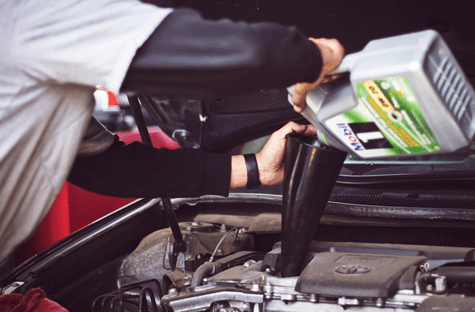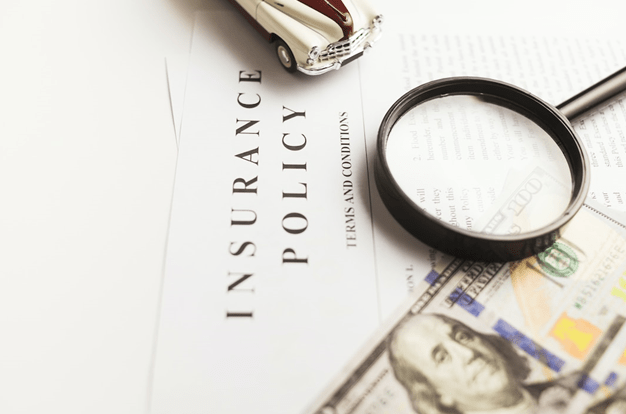Owning a car is a big responsibility. It is not just about buying a car and driving it off the showroom floor. There are several responsibilities that come along with car ownership that you need to be aware of. Whether you are a first-time car owner or have owned cars for years, taking care of your vehicle and protecting your investment is essential.
Knowing how to maintain your vehicle properly, deal with repairs, and protect your investment are essential steps in becoming a responsible car owner. Keep reading for a comprehensive guide that will provide information on proper maintenance, repair, insurance, safety tips, and how to get the most out of your vehicle. In this article, we will outline key factors to consider and actions to take to ensure a long-lasting and enjoyable car ownership experience.
Protecting From Environmental Factors
Cars are exposed to various environmental factors that can cause damage to their exterior and interior. These factors include UV rays, acid rain, bird droppings, tree sap, snow, and salt. While it is impossible to completely protect your car from these elements, there are measures you can take to minimize their impact and maintain the appearance and value of your vehicle.
One of the most effective ways to protect your car from environmental damage is to keep it covered. Whether you park your car in a garage or use a car cover, minimizing its exposure to the elements can significantly reduce the risk of damage. Car covers are available in a range of materials, with some specifically designed to protect against certain environmental factors. For example, UV-resistant covers can protect against sun damage, while water-resistant covers can prevent damage from rain and snow.
Another way to protect your car is to wash and wax it regularly. Washing and detailing your car every few weeks can help to remove dirt, bird droppings, and other debris that can cause damage over time. Additionally, applying a coat of wax after washing can help to protect your car’s paint further and prevent it from fading or chipping. Specialized waxes are also available that can protect against UV rays and acid rain.
Understanding Car Maintenance
Proper car maintenance is essential for your vehicle’s performance, safety, and longevity. Regular maintenance checks not only help prevent unexpected breakdowns but also help maintain fuel efficiency and reduce long-term repair costs. Carrying out regular oil changes, checking tire pressure, and inspecting brake pads are just a few examples of necessary maintenance tasks.
It is important to familiarize yourself with your car’s owner manual, which contains detailed instructions for routine maintenance specific to your vehicle. Additionally, keep a maintenance schedule to track your car’s ongoing needs and ensure timely upkeep. If you are unsure about performing any maintenance tasks, consult a professional mechanic for assistance.
Handling Car Repairs
Car repairs can be a significant part of the ownership experience. Issues may come up unexpectedly, and it’s essential to be prepared. The first step in addressing repairs is diagnosing the problem. Keep an eye on your dashboard’s warning lights and consult your owner’s manual for information on potential issues.
If you’re unsure about the necessary repairs, seek professional assistance. Finding a reliable and experienced mechanic is critical when dealing with any car troubles. Research local repair shops read reviews, and ask for recommendations from friends or family members. Always get quotes for any work needed and compare prices to ensure you’re getting the best deal.
As a car owner, you should also be prepared for emergency situations. Keep an emergency car kit in your vehicle, complete with essential tools, a flashlight, and jumper cables. It’s also a good idea to familiarize yourself with basic troubleshooting techniques and emergency procedures, such as changing a tire or jump-starting your car.
Insuring Your Car
Car insurance is a crucial aspect of vehicle ownership. It provides financial protection in the event of accidents, theft, or other damage to your car. Choosing the right insurance policy depends on several factors, including your vehicle’s make and model, your driving history, and your location.
Different types of car insurance policies offer varying degrees of coverage. Liability insurance, for example, covers damages caused by your vehicle to other people or property, while comprehensive insurance provides coverage for theft or damage caused by events other than collision. It’s essential to assess your needs and compare different insurance companies and policies to find the best fit for your situation.
Keep in mind that maintaining a good driving record, such as following traffic regulations and avoiding accidents, can help you save on car insurance premiums. Taking advantage of any available discounts, like those for good driving behavior or bundling policies with the same insurer, can further reduce your insurance costs.
Car Safety and Security
The safety and security of your vehicle should be a top priority as a car owner. Regular maintenance checks can help ensure the proper functioning of your car’s safety features, such as airbags and anti-lock braking systems. Additionally, be aware of recalls issued for your specific model and promptly address any identified safety concerns.
Secure parking is also vital to protect your vehicle from theft or vandalism. Park your car in well-lit areas or secured parking lots whenever possible. Invest in anti-theft devices such as steering wheel locks, car alarms, or GPS tracking systems to provide added security.
Driving safety extends beyond your vehicle’s features and security measures. Practicing safe driving habits like wearing a seatbelt, following traffic regulations, and avoiding distractions such as texting while driving is crucial in ensuring your safety and that of other road users.
Maximizing Fuel Efficiency
Fuel efficiency plays a crucial role in the overall cost of car ownership. By improving your vehicle’s fuel efficiency, you can save on fuel costs and reduce your environmental impact. Simple actions, such as maintaining proper tire pressure, using the correct grade of motor oil, and avoiding excessive idling, can all contribute to better fuel economy.
Adopting efficient driving habits can also significantly improve your car’s fuel efficiency. Accelerating gently, maintaining a consistent speed, and avoiding rapid braking can all lead to reduced fuel consumption and increased savings.
Extra weight in your car can also negatively impact fuel efficiency. Regularly clean out your trunk and remove unnecessary items to maintain better fuel economy. Additionally, using a roof rack for storage can increase aerodynamic drag and fuel consumption, so it’s best to remove it when not in use.
Getting the Most Out of Your Car Ownership Experience
The key to getting the most out of your car ownership experience is taking the time to understand your vehicle’s needs and committing to proper maintenance, repairs, and upkeep. Regularly evaluating your car, seeking assistance when needed, and staying informed about your vehicle’s various features can help ensure a reliable and enjoyable ownership experience.
Moreover, developing safe driving habits and improving your vehicle’s fuel efficiency can lead to increased savings and a better driving experience. Lastly, taking the necessary steps to maintain your car’s appearance and cleanliness can further enhance your enjoyment and overall satisfaction as a car owner.
Overall, car ownership involves various responsibilities and actions that can contribute to a pleasurable and rewarding experience. By adhering to the guidance provided in this article, you can ensure that you are well equipped to make the most of your car ownership journey.




